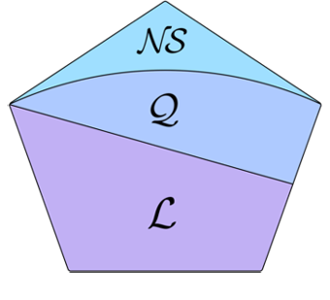Among the several aspects that distinguish quantum from classical theories, non-locality is one of the most striking. It manifests through stronger-than-classical correlations between results of measurements done in different parts of a system that are not allowed to communicate with each other.
Sometimes termed “Bell non-locality” (due to John Bell, whose “On the Einstein Podolsky Rosen paradox” paper was the starting point), this phenomenon is an important rupture with all pre-quantum physical theories. Although Bell’s paper was largely ignored for a few decades, what we now call non-locality is a highly active research area, having both fundamental and practical importance.
On the theoretical side, non-locality is closely connected with entanglement and measurement incompatibility, which are two other highly “quantum” aspects of Nature. Thus, all knowledge relating to one usually teaches us about the others. While it is true that we know a lot about these phenomena, a satisfactory understanding of them is still elusive, and there is much to be done. Our group is particularly interested in understanding when and why non-local correlations arise (or when they do not), and in finding further connections between them and other non-classical aspects of quantum theory.
For the practical importance, the larger interest in non-locality can be traced back to its proposal as the means for a secure protocol of cryptographic key distribution in the 90’s. Not long after its proposal, Shor’s algorithm was discovered as a way of breaking current cryptographic systems, and the interest for such more secure ways of transmitting information turned even more important. From then on, non-locality has found applications in several other tasks, such as communication complexity and randomness generation, thus becoming an important tool to the area of quantum information in general.
Like most of our research, non-locality is right where Mathematics, Physics and Computer Science meet, and our investigations rely on tools taken from all these disciplines.
If you wanna know what we’re up to non-locality-wise, check our list of publications or just drop us an e-mail.
